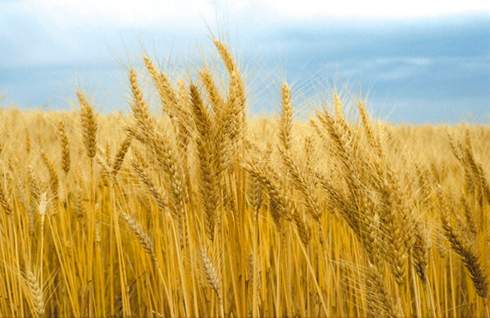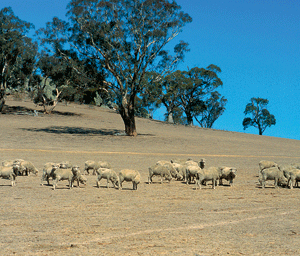
|
Published: 21 November 2011
Science takes on the global food challenge
The Commission on Sustainable Agriculture and Climate Change (CSACC) – an independent global commission of eminent scientists – has released a blueprint for urgent action to deal with the global challenge of feeding the world in the face of climate change, population growth, uneven food distribution, volatile markets and degraded ecosystems.
The summary for policy makers, ‘Achieving food security in the face of climate change’, can help governments, agribusiness and food companies deliver evidence-based and long-term regional solutions to this global challenge.
The summary is being released in the lead-up to the 17th Conference of the Parties (COP17) to the United Nations Framework Convention on Climate Change (UNFCCC) in Durban, South Africa, later this month.
CSIRO Chief Executive, Dr Megan Clark, represents Australian science on the CSACC.
‘This global science effort has analysed existing diverse scientific and cultural knowledge to determine leverage points in the world’s food system and to identify policy actions to address the growing challenges,’ Dr Clark says.
The Commission’s Chairman, Professor Sir John Beddington, says the challenge is to reorient the whole global food system – not just agricultural production, and not just in developing countries.
‘We need a socially equitable, global approach to produce the funding, policy, management and regional initiatives that will deliver nutrition, income and climate benefits for all.’
The Commission emphasises that food security is a problem for everyone, with rich and poor countries facing different but equally challenging problems.
Its recommendations support climate-resilient agricultural production, efficient resource use, low-waste supply chains, adequate nutrition and healthy eating choices that, together, will constitute a sustainable food system.
‘Climate change is already causing more extreme weather events, such as high temperatures, altered rainfall patterns and more intense extreme events such as droughts and floods, and will affect those people who already live on the brink of vulnerability,’ Sir John says.
According to Professor Tekalign Mamo, Advisor to the Ethiopian Minister of Agriculture and CSACC Commissioner: ‘Climate, such as high temperatures, droughts and floods, and will particularly harm those people who already live on the brink of hunger and malnutrition.
‘Food insecurity produces widespread human suffering, even in the world’s wealthiest countries, as well as political and economic instability, so it is clear the status quo is not an option.’
The Deputy Director of CSIRO’s Sustainable Agriculture Flagship, Dr Peter Carberry, says Australia has its part to play.
‘Australian agriculture (including land clearing) accounts for at least 25 per cent of the country’s greenhouse gas (GHG) emissions – a figure similar to the global average.
‘We need to contribute to the global challenge of reducing GHGs from agriculture by 50–80 per cent by 2050 while, at the same time, contributing to a 30–80 per cent increase in global food production.
‘Mitigating agricultural emissions and storing more carbon in soils and forests are critical needs but such actions have to be balanced with Australian and international requirements for food security.
‘For our nation, this report reinforces the critical role our science plays in the global food system, identifying priorities at the global scale across sometimes conflicting issues.
‘CSIRO is working with Australian farmers, industry and government to enable the continued productivity of agriculture in Australia, while reducing our environmental footprint.
‘Overseas, we are seeing increased commitment to agricultural research in regions like Africa – where AusAID, the Australian Centre for International Agricultural Research (ACIAR) and CSIRO are working with African scientists, farmers and key players along the production chain to address critical food security challenges.’
CSIRO has published a resources page with further information, including a discussion on global food security featuring Professor MS Swaminathan (of Green Revolution fame in Asia) and CSIRO’s Dr Brian Keating.
You can also read about CSIRO’s involvement with the Africa Food Security Initiative in Helping Africans solve agricultural challenges.





